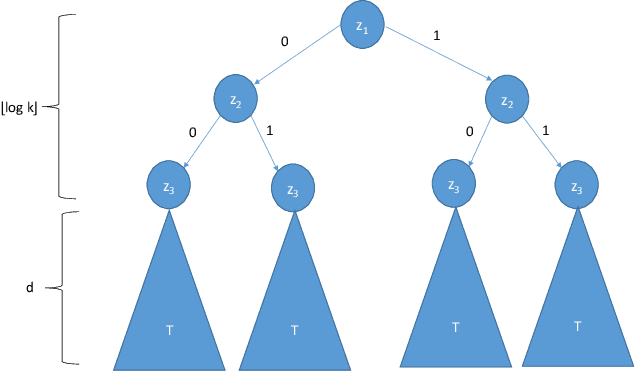Closure Properties for Private Classification and Online Prediction
Paper and Code
Mar 11, 2020
Let H be a class of boolean functions and consider acomposed class H' that is derived from H using some arbitrary aggregation rule (for example, H' may be the class of all 3-wise majority votes of functions in H). We upper bound the Littlestone dimension of H' in terms of that of H. The bounds are proved using combinatorial arguments that exploit a connection between the Littlestone dimension and Thresholds. As a corollary, we derive closure properties for online learning and private PAC learning. The derived bounds on the Littlestone dimension exhibit an undesirable super-exponential dependence. For private learning, we prove close to optimal bounds that circumvents this suboptimal dependency. The improved bounds on the sample complexity of private learning are derived algorithmically via transforming a private learner for the original class H to a private learner for the composed class H'. Using the same ideas we show that any (proper or improper) private algorithm that learns a class of functions H in the realizable case (i.e., when the examples are labeled by some function in the class) can be transformed to a private algorithm that learns the class H in the agnostic case.
 Add to Chrome
Add to Chrome Add to Firefox
Add to Firefox Add to Edge
Add to Edge